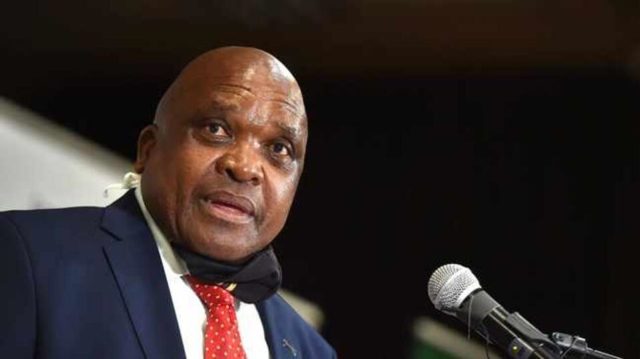Health Minister Joe Phaahla has revealed that the Cuban doctor training programme is subject to an investigation by the Special Investigating Unit.
HEALTH Minister Joe Phaahla has revealed that the Cuban doctor training programme is subject to an investigation by the Special Investigating Unit (SIU).
Phaahla revealed this when he was responding in writing to parliamentary questions from DA MP Haseena Ismail.
Ismail asked the minister whether there were currently any corruption charges against the Nelson Mandela Fidel Castro Medical Collaboration Programme, popularly known as the Cuban doctor training programme.
In his written response, Phaahla pleaded ignorance to any corruption charges, saying he had not been alerted.
“There are no corruption charges that have been brought to my attention regarding the Nelson Mandela Fidela Castro Collaboration Programme.
“However, when the National Department of Health conducted an internal audit and reconciliation with the provinces on this programme, from October to December 2021, it was not conducted for the Gauteng Department of Health.
“The details from the Gauteng Department of Health are that all files relating to the Nelson Mandela Fidel Castro Collaboration Programme have been taken by the Special Investigating Unit for an investigation,” he said.
Responding to a separate set of questions, Phaahla said none of the provinces had reported to him that they were not supporting the programme or were stopping payments.
The amount payable for tuition fees for students in Cuba is billed in US dollars and payable by the national Department of Health based on the exchange rate at the date of transfer.
The amount payable is fixed per level of study per student, and the stipend is also billed in US dollars.
Phaahla said R31,740 was the cost per student for the programme preparatory level, R76,935 for students in the first year up to fifth year and R38,088 per stipend for each student.
There are additional costs of two return flight tickets per student during the six years of study and/or during a bereavement of next of kin.
The minister said the tuition fees at South African universities during the integration since inception until 2018 varied from one university to another.
“After the agreement, signed with local universities, the cost of integration per student has been standardised since July 2018 and adjusted according to the Consumer Price Index. Students have all to be in the clinical training platform for 18 months which translates into three semesters,” he said, adding that additional costs included transportation of the final year students to local universities, which “depends on the mode of transport and distance to the university.”
Phaahla said R986,367 was paid by the department towards the integration of students at local universities between July 2018-19 and July 2021-2022.
A total of R231,325 was paid in 2018-19 and R241,734.63 the following year.
In 2020-2021, a total of R252,612.68 was paid and R260,696.28 in 2021-22.
Phaahla confirmed that his department had requested the provinces to make an additional payment over and above the payments they were supposed to make this year.
“This was a shortfall for the 2019/2020 academic period of students in Cuba. The shortfall was because the exchange rate baseline that was used in calculating tuition fees for students in Cuba was at R15 for the 2019/2020 academic period.
He said since the exchange rate escalated so much above the baseline, that meant that the amount transferred to Cuba was lower than the amount received from provincial departments of Health.
“The amount transferred to Cuba did not cover the total amount due,” he said.
Asked whether his department is in possession of an audit report of the programme that he could provide to Ismail, Phaahla said the department had just concluded an internal audit and reconciliation exercise from October 2021 to November 2021.
“The findings have been sent to provinces for review and approval. Provinces have been requested to correct the findings by December 17, 2021,” he said.
– POLITICAL BUREAU








